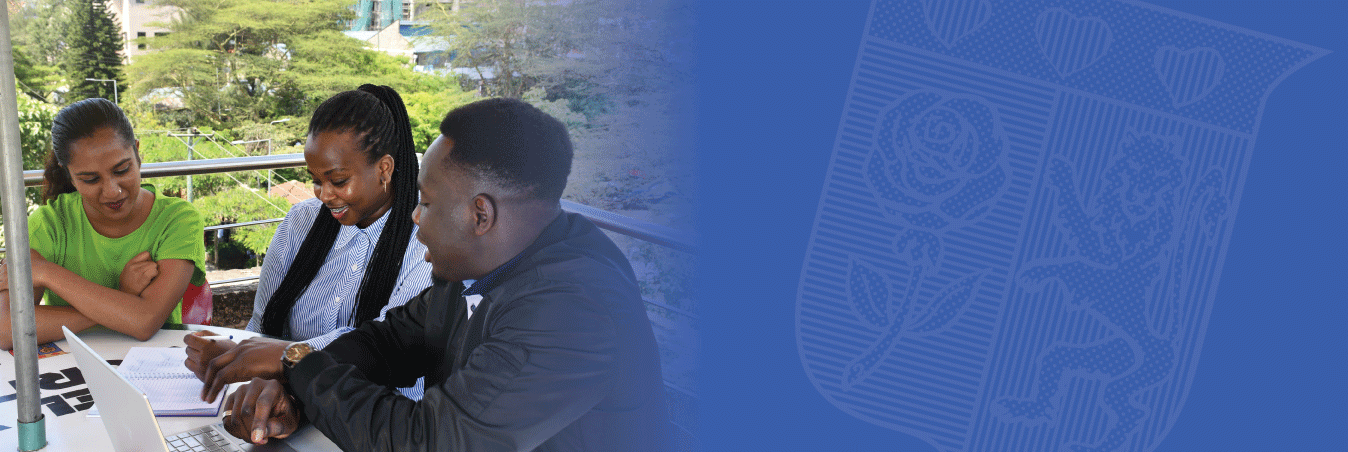
Ideate, innovate, connect
It’s been an intense morning with a never ending to-do list. You barely managed to have breakfast before getting on with the day. Now, at lunchtime, your sugar levels are depleted. If you don’t get sugar in your system in the next few minutes, your system will begin to shut down. So to the cafeteria you go…and find that all other Stratizens are also on the queue.
Irénée Vunabandi, a final-year Actuarial Science student and Mogoa, in his final year of the Informatics and Computer Science course have developed a platform that will have you sorted in minutes. They’ve created an online platform for ordering and paying for meals with the aim of reducing queueing time.
“We have named this platform Cafeteria Chap Chap. Chap Chap is a Swahili phrase which refers to the quality of being fast or quick.”They emerged winners at the inaugural Ideas Festival that was held in December 2022. An innovation on motion sensors came in second while a mobile charging stations innovation came in third.
Research and Innovation is a key strategic pillar at the University with the main objective of developing an open research culture and remove barriers to innovation for all our staff and students. During the Ideas Festival organised by the University Research and Innovation Division, Dr. Vincent Ogutu, Vice Chancellor, launched the University Ideas Foundry workspace that paves way for students and faculty to cultivate collaboration and innovation. The #SUIdeasFestival brought together undergraduate students from different faculties, providing them with a platform to showcase their innovative ideas and encourage collaboration outside their respective schools.
As we promote a culture of innovation, Dr. Ogutu encouraged the students to;
- Always think outside the box.
- Be creative.
- Identify the x in the complex issue and come up with solutions
Irénée and Mogoa narrate their experience.
1. Why did you choose this particular project/innovation?
At first we were tempted to look for a grand idea, complex and all, but we realized that was not going anywhere. We had to focus on solving a real problem, something people actually needed. We chose this project because we identified that there was a problem of long queueing time and realized that we could solve it. Furthermore, we are passionate about technology and we couldn’t resist using our skills to make a better Strathmore.
2. What impact will it have?
We project that we will reduce queueing time significantly because the queue will no longer depend on how many cashiers are available. Moreover, the online platform will increase convenience for both customers and the management. Customers will have a more interactive way of choosing their meals. The management will have an opportunity to improve their marketing since individual customers can be targeted in form of adverts, discounts and meal recommendations.
3. What are your future plans?
We just want to implement Cafeteria Chap Chap so that we can all save time whenever we visit the cafeteria. Once the online platform or ordering and paying are working, we are planning to explore developing a food delivery service within the university.
4. What was your experience of participating in the first ideas festival?
It was a learning experience.
It’s exciting to be a part of it, though at first, it seemed unlikely that we’d win the championship after nearly being eliminated in the first round. We had a lot to improve, and we also had exams to sit for in the same period. We shifted our energy from the goal of winning the competition to merely enjoying the whole process. We took the feedback from the first round and addressed all the red flags the judges raised, which resulted in a very simplified business model that we then presented for the final round. This made the whole experience so much fun, mostly because we had no pressure to win.
5. What advice would you give students who intend to participate in such a festival? What lessons did you learn from the challenges you may have gone through?
Setting intentions focused on the whole process instead of performance goals is important. Setting clear intentions for the challenge will keep you motivated when things get tough while goals that are too high will easily discourage you if things are not as easy as you expected. A simple intention of enjoying the process kept us going when we were tempted to give up. The intention allowed us to leverage the feedback from the first round and win the challenge.
This article was written by Communications team.
What’s your story? We’d like to hear it. Contact us via communications@strathmore.edu
